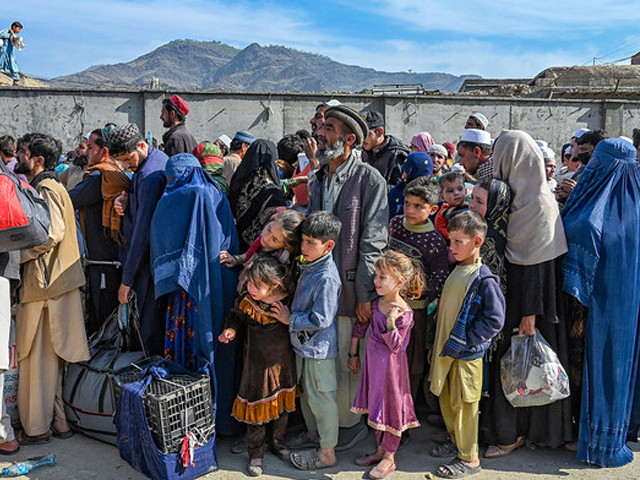The Supreme Court on Friday said the country is a signatory to United Nations (UN) conventions safeguarding the rights of refugees and these agreements bind Pakistan as the court resumed hearing the petition against the eviction of Afghan refugees.
Justice Ayesha Malik, presiding over the hearing, acknowledged that deportation was a complex issue requiring constitutional interpretation and suggested the constitution of a larger bench to further scrutinise the issue.
Umar Gillani, representing the petitioners, argued against the interim government’s authority to evict illegal refugees, asserting a lack of constitutional mandate to do so.
The counsel also raised concerns over the violation of human rights and alleged inhuman treatment of Afghan citizens by the government.
Read: Afghan migrants warned against political activity
Gilani asserted that the caretaker government lacks the constitutional authority for conclusive decisions on policy matters.
When asked by Justice Yahya Afridi what fundamental human rights had been violated during the eviction process, the petitioners’ counsel said Articles 4, 9, 10A and 25 of the Constitution of Pakistan had been violated.
The court then issued notices to the federation, the foreign ministry, the AGP and the apex committee responsible for the decision.
The hearing was then adjourned till next week.
During an earlier hearing, the petitioners’ counsel argued that the “impugned directive” by the “apex committee” of the caretaker cabinet effectively reverses a 45-year-old Pakistani state policy of hospitality and leniency towards refugees, asylum-seekers, and other migrants from the Afghan borders.

